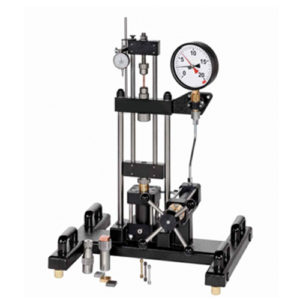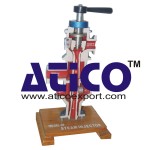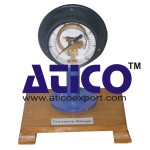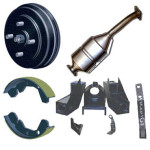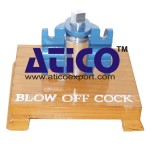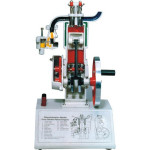A solid understanding of the properties of materials is essential for technical and scientific professions. This knowledge helps select the suitable material, monitor production and processing and ensure the requirements in terms of a component. The materials test provides the necessary data in a reproducible and precisely quantified manner. The tensile test, bending test and hardness test are all part of classic destructive materials testing. The range of experiments with overs tensile tests and Brinell hardness tests in the base unit. Compression, bending, shear and cupping tests can be conducted using the accessories. Disk and coil springs can also be tested. The experimental unit has been developed specifically for experiments in small groups and is characterised by a clear design, simple operation and accessories that are easy to exchange.
Learning Objectives/Experiments
Tensile tests
Plot stress–strain diagrams
Brinell hardness test
Together with the accessories
Compression tests
Bending tests
Cupping tests
Shear tests
Testing of disk and coil springs
Specification
Classic experiments from destructive materials testing
Tensile tests, Brinell hardness test
Extensive accessories available for further experiments
Generation of tensile and compressive forces
Forces generated by hand-operated hydraulic system; no power supply required
Force gauge, pointer instrument with drag indicator
Dial gauge for determining the elongation
16 hardness specimens
16 tensile specimens B6x30 according to DIN 50125
Technical Data
Test force: max. 20kN
Stroke: max. 45mm
Free installation space for specimens: 165x65mm
16 tensile specimens
material: 4x Al, 4x Cu, 4x St, 4x CuZn
16 hardness specimens
LxWxH: 30x30x10mm
material: 4x Al, 4x Cu, 4x St, 4x CuZn
Sphere for hardness testing: Ø 10mm
Measuring ranges
force: 0…20kN, graduation: 0,5kN
travel: 0…20mm, graduation: 0,01mm

